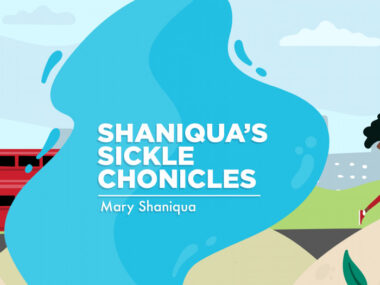My thoughts on recovery, 3 days after a sickle cell pain crisis
A columnist reflects on an audio journal entry he recorded
Written by |

I’m a big advocate for giving myself time to recover after a sickle cell pain crisis. After my last crisis, however, I severely underestimated how long this process would take. It’s been two months now, and I’m finally able to return to everything I enjoy. I recognize myself again.
Three days after the crisis, I recorded an audio journal entry to reflect on at a later date. I tend to forget the pain and feelings associated with a crisis, which makes it easier to move on. This time, though, I wanted to remember what I was going through.
The following is a transcription of my voice recording, with light editing for clarity.
In the moments of recovery
The aftermath of this crisis is still gripping my entire body. I went to the hospital to get IV treatment as the medication at home wasn’t effective. The pain was all over my body, and I genuinely feared for my life. Once the life-threatening pain eased in the hospital, I was discharged the same day. While I wasn’t back to feeling 100%, I believed the rest of the recovery could happen at home.
Now, at home, my legs feel almost useless. Just walking to the bathroom leaves me completely drained. Showering, something so ordinary, takes every ounce of energy I have — and afterward, I have to sit and catch my breath as though I’ve just run a marathon. It’s surreal that something so routine now feels monumental.
But now, three days later, it’s clear how slow the recovery is. I haven’t been able to work because the pain has been so constant. My legs ache continuously, only somewhat relieved by heat pads and topical medications for joint pain. This is all I’ve been able to manage in terms of treatment so far.
The medication has completely suppressed my appetite, which is frustrating because nourishing myself is key to healing. I’ve relied on liquid supplements for basic nutrition since eating solid food feels nearly impossible. It’s all so exhausting.
Part of me wishes this never happened, but I know it’s life. I’ve been pushing myself for a long time, juggling too many things simultaneously. This crisis might be my body’s way of forcing a reset. The hardest part is not knowing how long this reset will last. It feels like I’ve lost control over my own body.
Now I can only take it one day at a time, judging my progress by how I feel when I wake up each morning. Will I have the strength to get through the day? Will I be able to eat? Will I feel well enough to do even a little work? Recovery feels like a waiting game. All I can do is be patient, rest, and hope that tomorrow brings more strength than today.
Reflecting on this, I can see how desperately I wanted to return to my usual routine only three days after a severe crisis. I can see how exhausted I felt and how frustrated I was by my limitations. I equated time in the hospital to the time needed for recovery, which is unhealthy because there’s no correlation.
Through therapy, I’ve realized how traumatic it is to have my life turned upside down in an instant. Giving grace to myself often feels like an excuse, but I need to consider the trauma I’ve been through.
I just wanted to get back to my normal.
Note: Sickle Cell Disease News is strictly a news and information website about the disease. It does not provide medical advice, diagnosis, or treatment. This content is not intended to be a substitute for professional medical advice, diagnosis, or treatment. Always seek the advice of your physician or other qualified health provider with any questions you may have regarding a medical condition. Never disregard professional medical advice or delay in seeking it because of something you have read on this website. The opinions expressed in this column are not those of Sickle Cell Disease News or its parent company, Bionews, and are intended to spark discussion about issues pertaining to sickle cell disease.



Tyrone Hodge
Dunston, I feel your pain. As a caregiver to my late wife Elena, I'm very familiar with everything that you go through. The pain is unbearable, and you have so many restraints placed on you, of what you can and can not do. There are so few resources earmarked for research, and that is so unfair. I recently remembered the movie A Warm December, produced and starring Sydney Poitier, which wasn't given the attention that it deserved. I hear what you are saying, but we need more advocates out there.